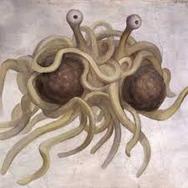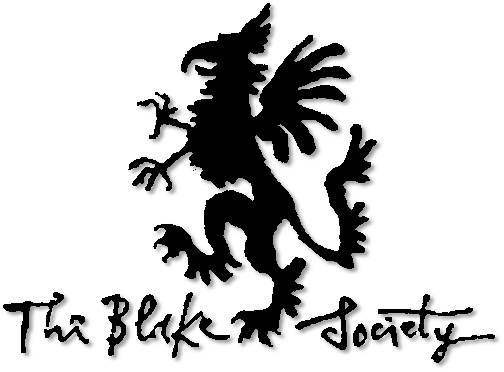With Christmas now drawing ever closer, it’s hard to miss the tell-tale signs of another approaching festive season, with decorations strung about town and shops playing seasonal music. However, one of the most talked about festive campaigns within the last couple of weeks would have to be the release of the annual Sainsbury’s Christmas advert, released just several days after John Lewis published their ever-popular marketing creation, featuring its usual display of creativity and style. The department retailer’s attempt at seasonal publicity was however, somewhat overshadowed after the release of Sainsbury’s rather poignant acknowledgement of the centenary anniversary of the First World War, created in conjunction with the Royal British Legion. The advert has come under fire from many critics, with journalists slighting it as ‘too risky and unrealistic’ and criticising its apparent attempt to ‘glamorize’ the harsh reality of a war that claimed thousands of innocent lives.
On watching the advert myself, the one thing that did strike me was the overall quality of the production. It is undoubtedly a poignant creation and one that, although more of a short film than an advert, has been well stylised and carefully planned. It is in fact an eloquent tribute to an event that was said to occur around Christmas 1914, when Allied and German forces emerged from their respective lines to engage in a game of football. Whether or not this account of events is historically accurate is somewhat uncertain but the retailer’s tribute to such a solemn moment is certainly thought-provoking.
However, therein lies the problem. We can appreciate the poignancy and thoughtfulness of such an advert, only until that slightly soul-crushing moment at the very end, when the all-too-familiar orange font flashes across the screen, reminding us that what we are watching is not in fact a touching tribute to those who sacrificed their lives in the events of the War but merely a publicity ploy for a supermarket chain. My heart sank a little as I watched it. What began as a solemn acknowledgement of real historic events turns into just another campaign to consumers. Of course, the idea is to persuade us to buy the chocolate in order to raise money for the Royal British Legion, but surely there is a better way of doing it than emphasising the supermarket chain that’s producing it. Is it not the Royal British Legion that should be the main focus in this particular advert?
I am not criticising the stylistic techniques used or the overall quality of the production. In fact, I quite like it and find it quite a moving experience to watch, until I realise it’s just another advertisement, like any other of its kind. And that is what is so disappointing. We all appreciate something that challenges us and makes us think but we don’t want to then realise that what we’re watching is just another attempt to persuade us to buy something. It is in a sense, an effective marketing strategy. No one is going to forget the Sainsbury’s Christmas ad in a hurry! But the end realisation does slightly dampen what has gone before. Perhaps Sainsbury’s should have either placed the end focus on the Royal British Legion, to which the profits of the product are actually going, or opted for an approach more like its retail rival John Lewis, with less of the solemnity and more cute children and cuddly penguins; something which although perhaps not so poignant, seems to better fit its role of Christmas advertisement, rather than First World War recreation.
Julie-Anne Maxwell
On watching the advert myself, the one thing that did strike me was the overall quality of the production. It is undoubtedly a poignant creation and one that, although more of a short film than an advert, has been well stylised and carefully planned. It is in fact an eloquent tribute to an event that was said to occur around Christmas 1914, when Allied and German forces emerged from their respective lines to engage in a game of football. Whether or not this account of events is historically accurate is somewhat uncertain but the retailer’s tribute to such a solemn moment is certainly thought-provoking.
However, therein lies the problem. We can appreciate the poignancy and thoughtfulness of such an advert, only until that slightly soul-crushing moment at the very end, when the all-too-familiar orange font flashes across the screen, reminding us that what we are watching is not in fact a touching tribute to those who sacrificed their lives in the events of the War but merely a publicity ploy for a supermarket chain. My heart sank a little as I watched it. What began as a solemn acknowledgement of real historic events turns into just another campaign to consumers. Of course, the idea is to persuade us to buy the chocolate in order to raise money for the Royal British Legion, but surely there is a better way of doing it than emphasising the supermarket chain that’s producing it. Is it not the Royal British Legion that should be the main focus in this particular advert?
I am not criticising the stylistic techniques used or the overall quality of the production. In fact, I quite like it and find it quite a moving experience to watch, until I realise it’s just another advertisement, like any other of its kind. And that is what is so disappointing. We all appreciate something that challenges us and makes us think but we don’t want to then realise that what we’re watching is just another attempt to persuade us to buy something. It is in a sense, an effective marketing strategy. No one is going to forget the Sainsbury’s Christmas ad in a hurry! But the end realisation does slightly dampen what has gone before. Perhaps Sainsbury’s should have either placed the end focus on the Royal British Legion, to which the profits of the product are actually going, or opted for an approach more like its retail rival John Lewis, with less of the solemnity and more cute children and cuddly penguins; something which although perhaps not so poignant, seems to better fit its role of Christmas advertisement, rather than First World War recreation.
Julie-Anne Maxwell



